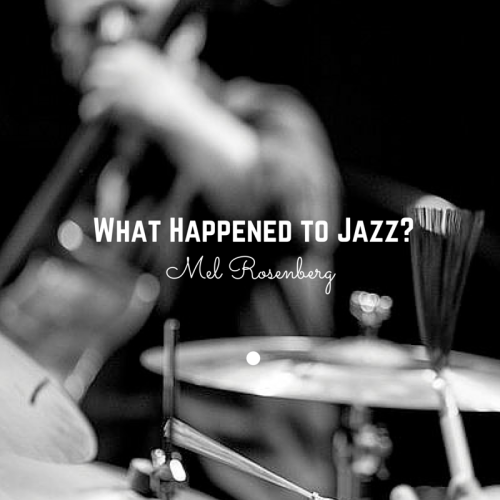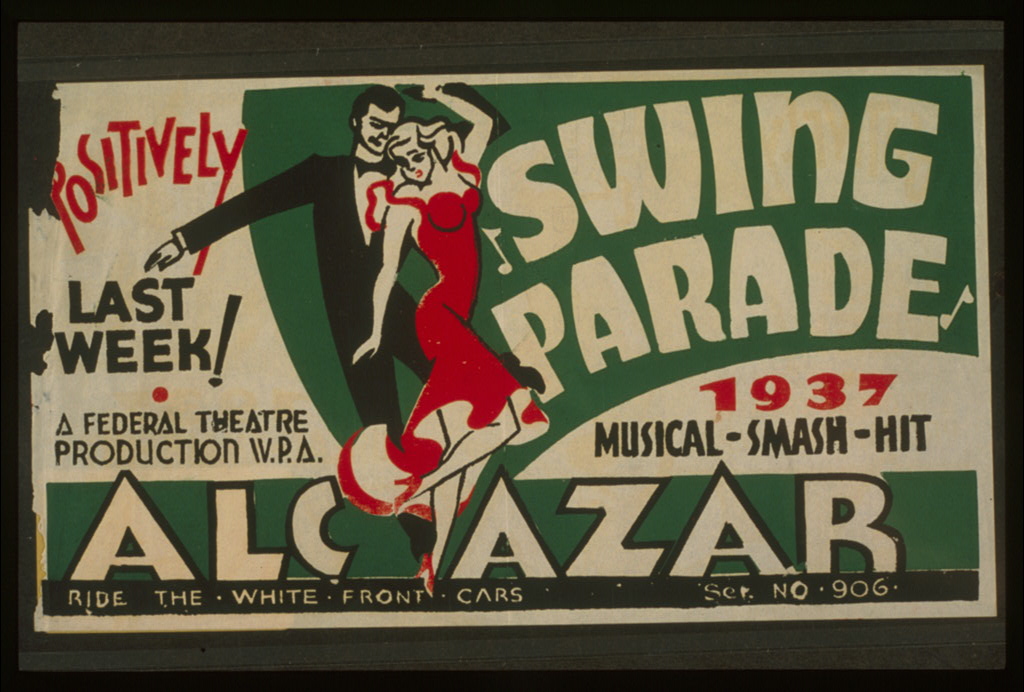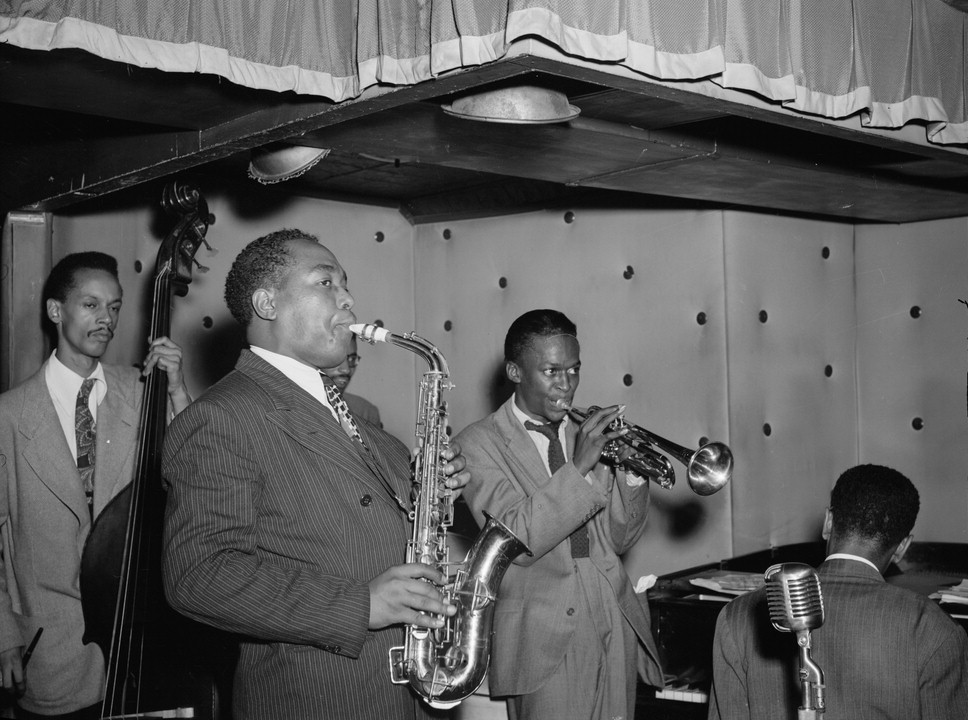
Jazz, as a music form, reached its stride (pun intended) in the twenties, thirties and forties of the twentieth century. In the nineteen thirties and forties, jazz was the mainstream popular music. Then jazz started becoming a musical dinosaur.
What happened?
2

No one knows exactly where the word ‘jazz’ comes from. It turns up in newspaper articles in the years between 1915-1920, not necessarily in a musical context. There are theories that just as with ‘rock and roll’, the origins of the word ‘jazz’ have something to do with intimate behavior.
4
I will not develop this theme, not knowing very much about it. We have to assume that ‘jazzy’ meant something ‘cool’, and vice-versa.
5

Jazz, as music, had its roots in blues, gospel and ragtime. It is primarily African American music. But it became popular around the world. After all, how could you help everyone else from falling in love with it?
7
In the nineteen thirties, the definitive swing rhythm became prominent. The swing rhythm accentuates the second and fourth beat of the bar, rather than the first and the third, which is common in many forms of classical music (marches in particular).
8

Many jazz pieces were songs with lyrics as well as melody. Very often the songs were written by the children of Jewish immigrants to the US. Even when the songs were not written as jazz songs, they quickly became jazz ‘standards’. Some of the most famous writers included Irving Berlin (Israel Baline), George and Ira Gershwin (Gershwitz), and Harold (Harry) Arlen (Arluk).
10
Some of the songs have melodies reminiscent of East European music. No wonder. Cole Porter was definitely not Jewish. He wrote some amazing songs. Interestingly, some of his songs have a Jewish-sounding melody (Night and Day, for example).
11

Kinda makes you wonder. Some say he was influenced by the success of Irving and George. But maybe I am prejudiced, as I am Jewish and I love Cole Porter.
13
The nineteen thirties saw the development of the ‘big bands’. These were bands with somewhere between ten and twenty jazz musicians – piano, guitar, double bass, drums, clarinet, saxophones, trumpet, trombone, and often other instruments as well.
14
Most employed vocalists who would sing with them. Some, such as Ella Fitzgerald, Billy Holiday and Frank Sinatra ended up becoming as famous or more famous than the bands they played with.
15

On the radio, the big bands were the hottest form of music. And radio was the hottest way of listening to music. Youngsters flocked to hear big bands, but primarily to dance. And one of the secrets of popular music is that it gets people dancing.
17
Jazz is often thought of as an improvisational, free-spirited music form where everybody plays exactly what they like. But there are frameworks, scales and rules. In a big band, most of the music was written beforehand with spaces left open for brief improvisational interludes by a particular musician.
18

This avoided cacophony, but was also limiting for those outstanding musicians who had more to give than proper reading and interpretation of the notes.
20
In the nineteen forties musicians started to rebel against the existing jazz frameworks, creating smaller combos, but in particular experimenting with different ways of interpreting melodies and harmonies.
21
For example, they would take a famous swing song, strip off the lyrics and the melody, and play a completely different theme on the same harmonic background. They would give the song a different name.
22
23

Only ‘jazz afficionados’ could make out the origins of these new tunes. Jazzmen became more interested in expressing themselves, rather than performing interpretations of the well-known jazz standards.
25
And that was what did jazz in as the popular art form. It became elitist and very different from what untrained ears were accustomed to.The evolving jazz (bepop in particular) was a very high level of music, but it demanded a high level of attention. And it wasn’t classic dance music.
26
The 1950s saw jazz be swallowed by something called ‘rock and roll’. Ironically, rock and roll is a close cousin of jazz, leaning heavily on the blues form and the two-four beat (the ‘back beat’).
27

Ironically, white people became enamored with it when they heard a white band playing it (Bill Halley and the Comets with “Rock around the Clock”), although the style had evolved from African American antecedents. Rock and roll music was simple, not too different, and eminently danceable. Presto!
29
And with the advent of the Beatles in the early sixties, rock music rocked the world and jazz became almost extinct. Just like the dinosaurs.
30
As you may have guessed, I am a musical paleontologist. I think that the popular music of the thirties and forties was the greatest ever made, and nothing comes close to the lyrics and melodies of that era, sometimes called “The Great American Song Book”
31
Of course, I am not alone.
There are still jazz festivals around the world, jazz radio stations, and jazz singers and musician perform in clubs and street corners around the world.
32
Paul McCartney likes the music, Amy Winehouse liked the music. Diana Krall lives the music.
And so do I.
33
34
Thank you for reading my book!
If you like it, you might also want to read:
My Jazz Teacher
Read more about me and see ALL my books on Ourboox (I have many)
Or even better, create a book of your own!!!
Here is a tutorial to help you get started on your own voyage as an Ourboox contributor!!
And finally, you can always write me at [email protected]
35
Published: Apr 13, 2015
Latest Revision: Aug 19, 2015
Ourboox Unique Identifier: OB-42556
Copyright © 2015








